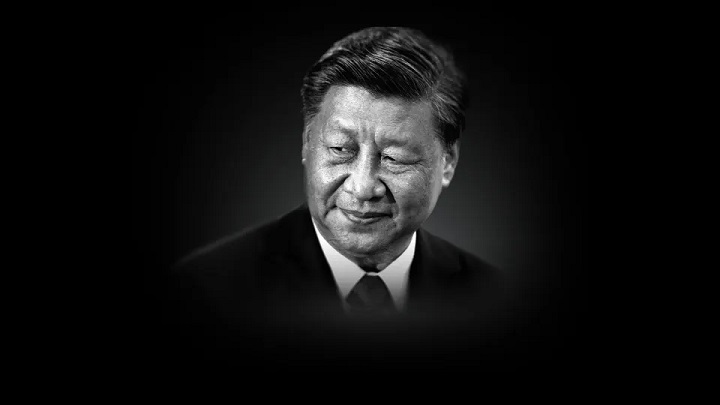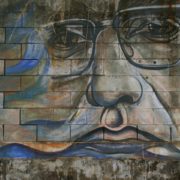
Is the East rising and the West declining? In a nutshell, this is the question that hangs in the mind of every Chinese person who grew up under Mao’s shadow and sees their country struggling in the aftermath of Covid. It means trusting that the People’s Republic of China (PRC) will fare better than the US. Expectations were betrayed during the Cultural Revolution (1966-1976), they were renewed with the reforms and opening up starting in 1978. Then where are we now?
President Xi Jinping, who took the stand that, indeed, the East is rising, will either be approved, fail, or be forced to take a different course. After all, he dropped all anti-Covid restrictions overnight when he saw they didn’t work.
Some in Beijing think that America is being trapped, once again, in a series of endless wars that will eventually sap all national energy, like the past wars in Iraq and Afghanistan. While it is a self-serving thesis, it holds a grain of truth. New fronts open up every day while nothing closes. The USA hovers over all these wars, risking being sucked into any of them. Then what? Isn’t the West going mad or suffering from overstretching?
Domestically, the economy is doing well, but many Americans complain about inflation and believe things are going badly. They want Trump to be back on top and bitterly criticize President Joseph Biden, adding de facto more fuel to Xi’s “the East is rising” narrative. In a fight, even a political one, the last man standing wins, and the PRC may believe it’s preparing for a long game of resistance while the USA is not and is running around like a “headless fly,” and it is being torn in very divisive domestic politics. China doesn’t have that, and Xi’s unrivaled reign may prove that autocracy works better than democracy.
Or not.
Because of Covid, America’s first response was chaotic, but in the end, it produced an effective vaccine; life went back to normal much sooner than in China, and its economy and politics rebounded. China’s first reaction to Covid was more effective than America’s, but then it didn’t move with ensuing changes; it didn’t produce an effective vaccine (proving that American science is still ahead) and got stuck behind.
A reason why China, after a first victory against Covid, didn’t move was, of course, because its science underperformed (no effective vaccine). Still, maybe it was also because of something else. It may be an example of Mark Elvin’s high-level equilibrium trap[1] applied to modern politics.
Elvin’s original theory argued that China’s pre-industrial economy had reached an equilibrium point where supply and demand were well-balanced. Late imperial production methods and trade networks were so efficient, and labor was so cheap that capital investment to improve efficiency was not profitable. And this fit with the necessity of political stability.
In present times, it may be that having reached an early positive result with the current policies (effective lockdowns largely unopposed by the population) and having politicized this result against Western poor performance, there was a disincentive to change course about Covid.
Still, this didn’t see the evolution of the events and the necessity to anticipate the evolution to be ahead of the curve.
From Beijing, there’s no definitive answer. The problem with Beijing is that, like with Covid, they might be convinced to turn around when the rest of the world has already found a different path, and it would be too late for Xi. But will it really be too late? It’s uncertain. Xi turned around on Covid very late and suffered no political backlash, although the country is still in pain.
So, will it be different this time? Maybe yes, because there would be too many mistakes; or maybe no, because the emperor is the emperor, untouchable, and Mao persisted with his horrible mistakes until he died. Similarly, Xi, who is not really “making mistakes” but rather following and observing events elsewhere, might continue along the same path.
Of course, if Russia were to cave if Gaza came to a conclusion, and if Iran were reined in, Beijing might engage in some deep soul-searching, also because then China would be politically surrounded and possibly isolated.
Moreover, if Elvin’s theory were correct about present Beijing’s politics, the point would be to change China’s setup so it no longer produces high-equilibrium traps.
It might be already happening. China is taking a cautious stand about wars flaring up all over; thus, it could be ready to move in one sense or another. Or maybe it’s a new way to try to gain some time when perhaps it is to waste some time.
[1] See Mark Elvin, The Pattern of the Chinese Past, Stanford University Press, 1973






By Frederick L. Feldkamp:
Great analysis. Let me add a couple points.
“Equilibrium” is the right idea. In the economics of Adam Smith, “equilibrium” is the point at which the price of a commodity, in all its alternative uses, will be equal.
Nobel winners have said that is the most important principle in all of economics. It took more than 200 years after Smith wrote that principle to achieve it in modern capitalism. The US has achieved this “Goldilocks” status,”not too hot; not too cold”, on several occasions since the 1970s and the EU has come darned close, after resolving crises in Ireland Greece, Spain and Italy.
So, the west has proved Smith’s equilibrium “can” be achieved, but it has trouble sustaining it.
China says it can achieve equilibrium by “direction” of the state with state ownership of major enterprises.
I and many others think that’s ridiculous. The problem for China is best described using Confucianism rather than Communism. “Filial piety” is the ultimate Confuscian foundation of the state. All “follow the leader” and that makes an economy “brittle”. Everyone errs and if all are following a leader that errs, ALL FALL.
In free societies with the rule of law, not men, we let everyone who obeys the law follow whatever course they wish and, as Adam Smith noted, eventually some fail (and must be rehabilitated to try again), but those that succeed lead those that fail the next time around. Thus, the economics of “creative destruction” becomes a continuous path to improvement, while an autocratic leadership model keeps hitting a “total failure” wall for all.
Second, as for the continuous war worry, the EU’s decision to pick up $54 billion of Ukraine costs (at a point where the US was doubting itself) makes the threat much more “universal” than whether the US does or does not want to make its system succeed. If this is a battle between free enterprise democracy and failed autocracies, then the chances of western success rise dramatically.
We must, however, act for mutual benefit, and that is VERY hard to “sell.”